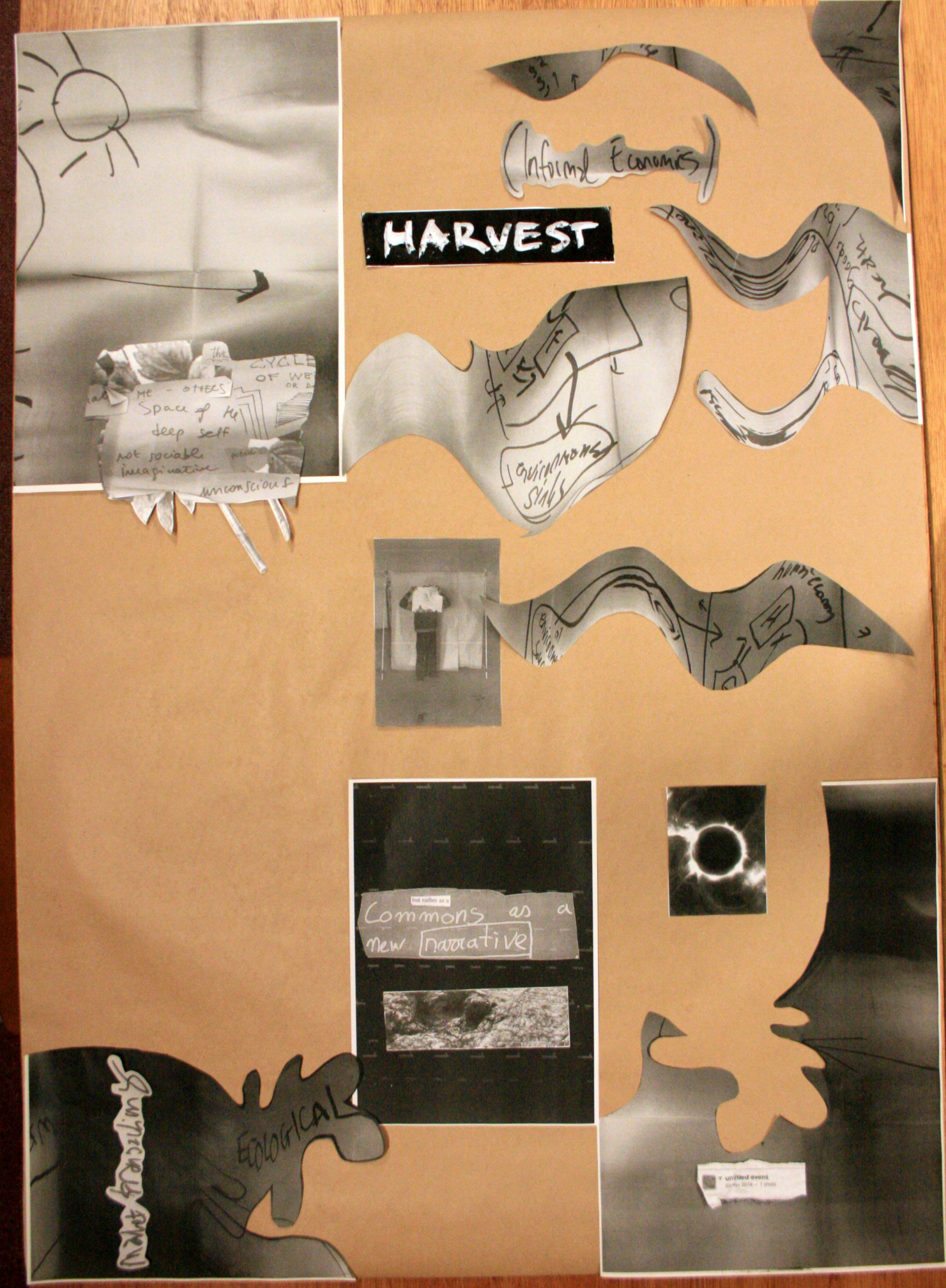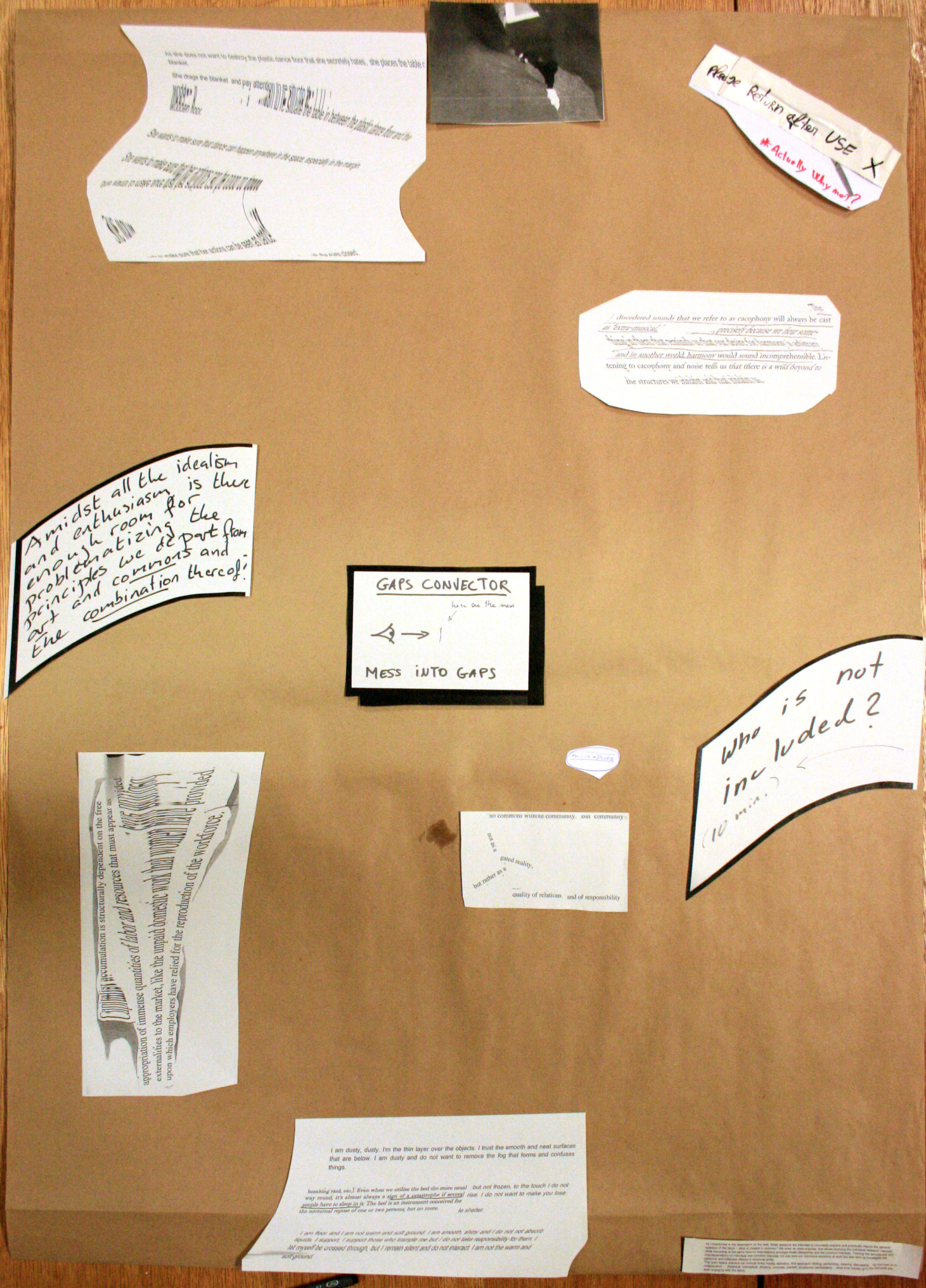Commons
Curated Research Program
a.pass, Brussels, 2016
How far does sharing go?
For three months, the a.pass post-graduate research program was set up as a critical framework to expand the notion of commons economies, and test how its adaptation to artistic practices could be effectuated.
Commons are cultural or natural resources that are managed in common responsibility instead of privatized ownership.
The structure of a commons provides a comprehensive framework to experiment and reflect upon the basic notions of individuality, sustainability, and other forms of social organization.
Within this research program, artistic practices are declared as common goods. It is the search for a form of organizing artistic processes, to question authorship and individual positioning, historic resources, and social plasticity. By compiling the personal research of participating artists into a common pool, new social-emotional methods with their feedback onto the individual trajectories could be researched.
The predominant neoliberal ideology – also in the field of art – dismisses and ignores cooperative and commoning human behavior as unfit alternatives, and leads political and economic structures according to the principles of competition and exclusion – the arts is no exception. Historical evidence shows that the opposite is the case.
But what is the actual surplus of cooperation and commoning? Beyond summing up the parts, what is collected in collectives? What is the commitment to cooperation actually about? What are philosophies and politics behind togetherness? Do commons restrict individuals before the social? What concept of “success” shall be strived for in cooperation?


